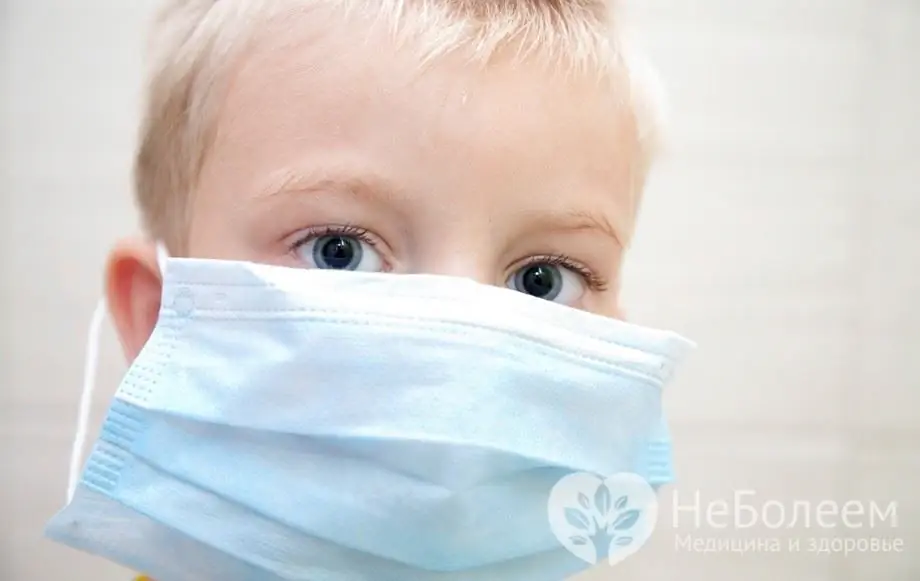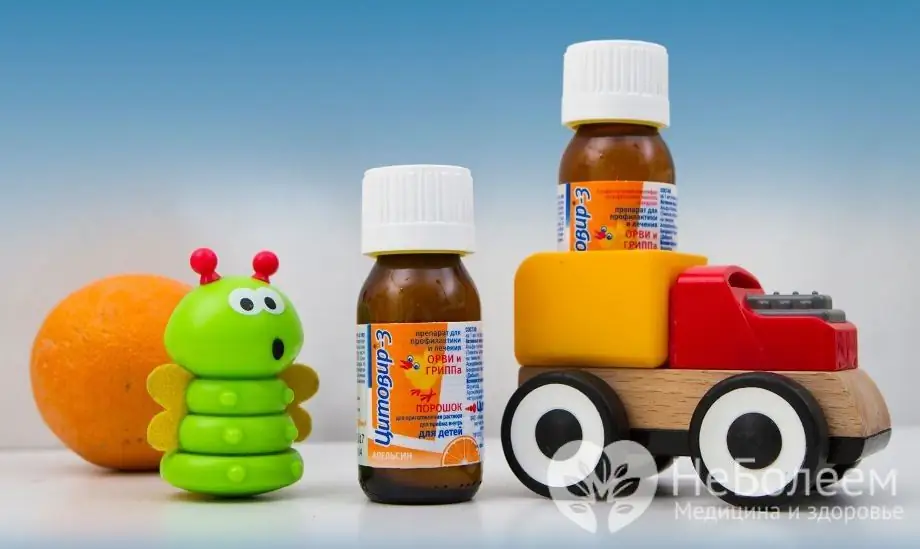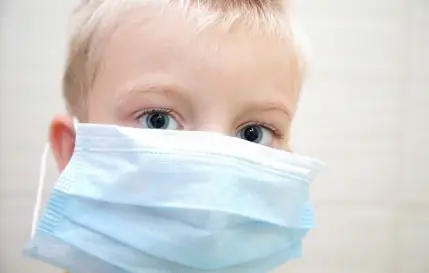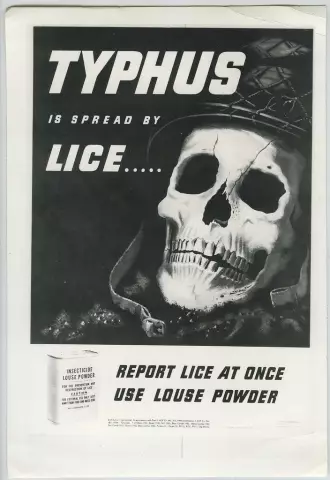- Author Rachel Wainwright wainwright@abchealthonline.com.
- Public 2023-12-15 07:39.
- Last modified 2025-11-02 20:14.
How to prevent a flu epidemic in kindergarten?
During the flu season, kindergartens are massively quarantined. Children get sick, parents have to go to sick leave. Can the likelihood of an epidemic be reduced? What should parents and kindergartens do?

Source: depositphotos.com
Flu hits budgets
During the flu epidemic, attendance in kindergartens falls by 55-65% every year. This usually happens in November, December, February. An average child under the age of 12 gets sick on average about 4-5 times a year. And for parents, each such case is a sick leave with a loss in salary of up to 40% of the average earnings. Plus, you need to buy medicines, select products for a therapeutic diet, and no one will return the payment for kindergarten either, only for food.
The state spends millions of rubles annually on flu vaccinations. According to the Minister of Health of Russia Skvortsova V. I., already 40% of the country's population are vaccinated against influenza. But during the epidemic, children still get sick, and most schools and preschool institutions are massively quarantined. It is obvious that influenza cannot be overcome by vaccination alone. According to Russian pediatricians, to reduce economic losses and morbidity in all kindergartens, it is necessary to introduce ARVI prevention programs. Let's try to figure out what exactly Russian doctors recommend.

Source: depositphotos.com
Not all vaccines are created equal
It is not difficult to draw up a child's ARVI prevention program. It includes hygiene, physiotherapy, fortification, as well as vaccination and taking prophylactic drugs against influenza.
In relation to vaccination, there is no established position, primarily on the part of the parents themselves. Most fears are based on doubts about the safety of vaccines, especially for children and immunocompromised people. After all, the vaccination can only be done by those who have not had a cold for 2 weeks. Many parents believe that vaccination only triggers an outbreak of influenza in October and November. Others say that statistics on flu shots are unreliable. Back in the USSR, there was a practice of draining influenza vaccines into the toilet and preparing false reports on preventive measures taken. Plus, the question of enhancing the body's nonspecific defense against viruses remains open, and not only against influenza, but also other acute respiratory diseases. After all, vaccines provide protection against only one or several strains of influenza, and not against all types of SARS (there are about 200 of them).
What will protect a child from ARVI?
Scientists led by an authoritative Petersburg immunologist, doctor of medical sciences, professor of the S. M. Kirov V. S. Smirnov specially for children developed a complex antiviral drug "Citovir-3", consisting of bendazole, sodium thymogen and ascorbic acid. The combination of these 3 components allows you to effectively fight influenza and other acute respiratory viral infections.
Bendazol stimulates the natural production of interferons, has an antispasmodic and hypotensive effect. Sodium thymogen activates all links of children's immunity to protect against viruses. In addition, sodium thymogen helps bendazole maintain adequate interferon levels at all times, without natural declines. This provides the body with continuous protection against viruses for a long time. Ascorbic acid is an antioxidant that binds free radicals that are formed during the vital activity of the virus, which reduces intoxication of the body.
8 research-backed effects
The therapeutic and prophylactic properties of the complex preparation "Tsitovir-3" have been repeatedly tested and verified by the majority of Russian research sites. Positive conclusions about the effectiveness and safety of the drug for children were given by the Research Institute of Influenza of the Russian Academy of Medical Sciences, the Research Institute of Children's Infections of the Ministry of Health of the Russian Federation, the Research Institute of Experimental Medicine of the Russian Academy of Medical Sciences and many others.
So what exactly did the clinical trials confirm:
- The absence of allergic reactions in children to the drug. The powder "Tsitovir-3" contains no sugar, artificial additives, preservatives and dyes. This dosage form is designed to meet the needs of young patients, and is suitable for children with limited sugar intake and with increased allergic reactions.
- Good compatibility with any symptomatic remedy, which is often necessary if the child does get sick. When using the drug, there are no negative side effects, including from interactions with other drugs. An exception is an allergy (urticaria) to the components of "Citovir-3", which is very rare - 1 time per million patients.
- Fight not only against influenza, but also against other acute respiratory viral infections. "Tsitovir-3" allows you to develop immunity from any ARVI, and not just from the flu.
- The drug is also suitable for weakened children for whom the vaccine is not suitable. Powder "Citovir-3" is approved for use in children from 1 year old. In one of the studies of the drug, which lasted more than two years, it was found that weakened children, who usually got sick 6-7 times a year, after prophylactic and therapeutic administration of "Citovir-3" get sick much less often - 1-3 times a year.
- The drug can significantly reduce the likelihood of complications. Studies have shown that in children who fell ill with the flu and took "Citovir-3", the duration of the febrile period was reduced by 40%. At the same time, not a single case of severe influenza complications (for example, pneumonia, bronchitis, etc.) was recorded.
- Not only as a therapeutic, but also as a prophylactic agent. Prophylactic administration of the drug allows you to increase the immune defense by 5 times. The components of "Citovir-3" do not accumulate in the body and are easily excreted. Its important advantages are the short course (4 days) and the identity of the treatment and prophylactic regimens.
- An individual approach to treatment and prevention. Each child has his own organism, his own genetics, his own tastes and habits. For the majority, “Tsitovir-3” (powder) with various natural flavors (orange, strawberry, cranberry) is suitable. For some children, only a powder with a neutral flavor (no natural flavors) is suitable.
- Improving the effectiveness of vaccination: flu shot + intake of "Citovir-3". In a study that was carried out in a double-blind method on 424 patients for six months, "Cytovir-3" proved to be an effective means of enhancing the potential of the influenza vaccine. So in the group of vaccinated patients who took "Tsitovir-3", the incidence during epidemics was 3.3 times lower than in the control, which did not receive prophylactic protection. In another experimental group, where patients were protected only by vaccination, the incidence decreased only 1.9 times (research materials were published in the specialized journal "Epidemiology and Infectious Diseases" No. 1, 2010., С-57).

Source: protiv-grippa.com
Found a mistake in the text? Select it and press Ctrl + Enter.






